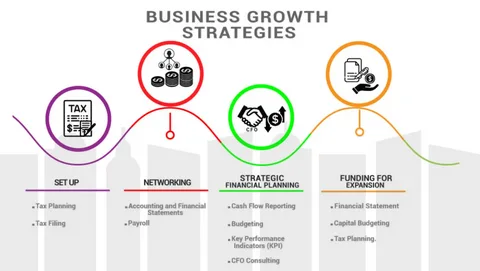Customer referrals have long been considered one of the most effective strategies to drive new business. When happy customers recommend your products or services to others, it can significantly enhance your sales growth. However, understanding and quantifying the true effect of these referrals requires a strategic approach. In this article, we’ll explore how measuring the impact of customer referrals on your sales funnel can help optimize your marketing efforts and improve conversion rates.
What Are Customer Referrals?
Customer referrals occur when existing customers recommend your product or service to their network. These referrals often lead to high-quality leads because they come from a trusted source, reducing the time and effort required to build trust. A referral can happen through word-of-mouth, social media shares, or referral programs incentivized by discounts or rewards.
Why Measuring the Impact Matters
Many businesses rely on referrals but fail to track their actual impact on sales. Without proper measurement, it’s difficult to determine whether your referral program is contributing meaningfully to your revenue or if it needs adjustments. By measuring the impact of customer referrals on your sales funnel, companies can identify which referral sources bring in the highest-value leads and which stages of the funnel are most influenced by referrals.
Key Metrics to Track
To effectively measure the impact of customer referrals, consider the following metrics:
- Referral Conversion Rate: The percentage of referred leads that convert into paying customers.
- Average Deal Size of Referred Leads: Referrals often bring in higher-quality leads, so tracking this metric helps quantify their value.
- Time to Close: Referred leads may move faster through the sales funnel due to higher trust levels.
- Referral Source ROI: Analyze which referral channels provide the most cost-effective leads.
Tracking these metrics provides actionable insights to enhance your referral strategy and maximize ROI.
Implementing a Referral Tracking System
Accurate tracking requires the right tools and processes. Implement a referral tracking system using your CRM or marketing automation platform to capture every referred lead and link it to the original customer. Encourage customers to share unique referral codes or links, making it easier to attribute new sales to referrals. This step is essential for measuring the impact of customer referrals on your sales funnel in a clear and data-driven way.
Conclusion
Customer referrals can be a powerful growth engine for any business, but their true potential can only be unlocked through careful measurement. By tracking key metrics and analyzing referral-driven leads, companies can refine their marketing strategies and improve overall sales performance. Prioritizing measuring the impact of customer referrals on your sales funnel ensures you’re making informed decisions and fully leveraging the power of happy customers to drive revenue.


